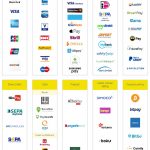In today’s digital era, data is a goldmine of insights that can help businesses make informed decisions and drive successful marketing campaigns. With the rise of data analytics tools, marketers can now harness the power of data to optimize their strategies, target the right audience, and measure the effectiveness of their marketing campaigns. Let’s explore how data analytics tools can empower marketers with valuable insights and enhance their marketing efforts.
1. Audience Segmentation
Data analytics tools provide marketers with the ability to segment their audience based on various demographics, behaviors, and preferences. By analyzing the data, these tools enable marketers to identify and target specific customer segments with tailored messages and offers. This level of personalization enhances the effectiveness of marketing campaigns and increases the chances of converting leads into customers.
2. Campaign Performance Tracking
With data analytics tools, marketers can track the performance of their marketing campaigns with precision. These tools collect and analyze data on key metrics such as click-through rates, conversion rates, and ROI. By monitoring campaign performance in real-time, marketers can quickly identify underperforming campaigns and make data-driven optimizations to improve results.
3. Customer Journey Mapping
Understanding the customer journey is critical for designing effective marketing campaigns. Data analytics tools help marketers visualize and analyze the customer journey from the initial touchpoint to conversion. By mapping out each interaction and touchpoint along the customer journey, marketers can identify strengths, weaknesses, and opportunities for optimizing the marketing funnel.
4. Social Media Analytics
Social media platforms offer a wealth of data that can be harnessed to drive successful marketing campaigns. Data analytics tools for social media provide marketers with insights into audience engagement, sentiment analysis, and campaign performance on platforms like Facebook, Twitter, and Instagram. These tools enable marketers to optimize their social media strategies and engage with their target audience effectively.
5. A/B Testing
Data analytics tools allow marketers to conduct A/B testing to compare different versions of their marketing campaigns. By creating multiple variations and measuring their performance, marketers can determine which strategies, messages, or visuals resonate most with their audience. A/B testing enables marketers to optimize their campaigns based on data-driven insights, leading to improved results.
6. Predictive Analytics
Predictive analytics tools use historical data to make predictions about future outcomes. They help marketers forecast consumer behavior, anticipate trends, and optimize marketing campaigns accordingly. By leveraging predictive analytics, marketers can allocate resources more effectively, identify opportunities, and stay ahead of the competition.
There are numerous data analytics tools available in the market to suit different marketing needs and budgets. Some popular options include Google Analytics, Adobe Analytics, HubSpot, and Mixpanel. When selecting a data analytics tool, it’s important to consider factors such as ease of use, scalability, integration capabilities, and customer support.
Data analytics tools have revolutionized the way marketing campaigns are planned, executed, and measured. By leveraging the power of data, marketers can gain valuable insights into their target audience, track campaign performance, and optimize their strategies for better results. Whether it’s audience segmentation, social media analytics, or predictive analytics, data analytics tools empower marketers to make data-driven decisions that drive success in their marketing campaigns.









